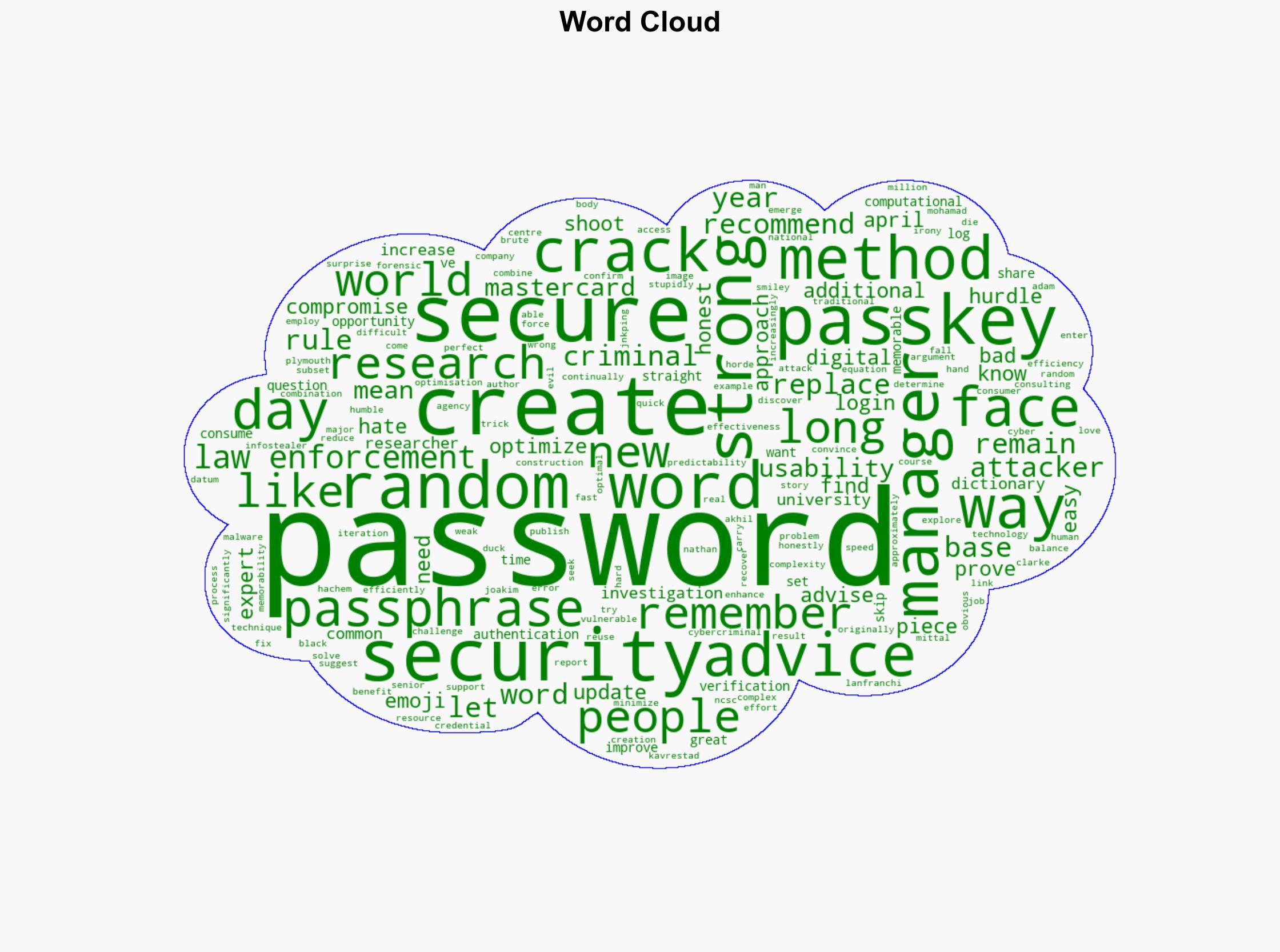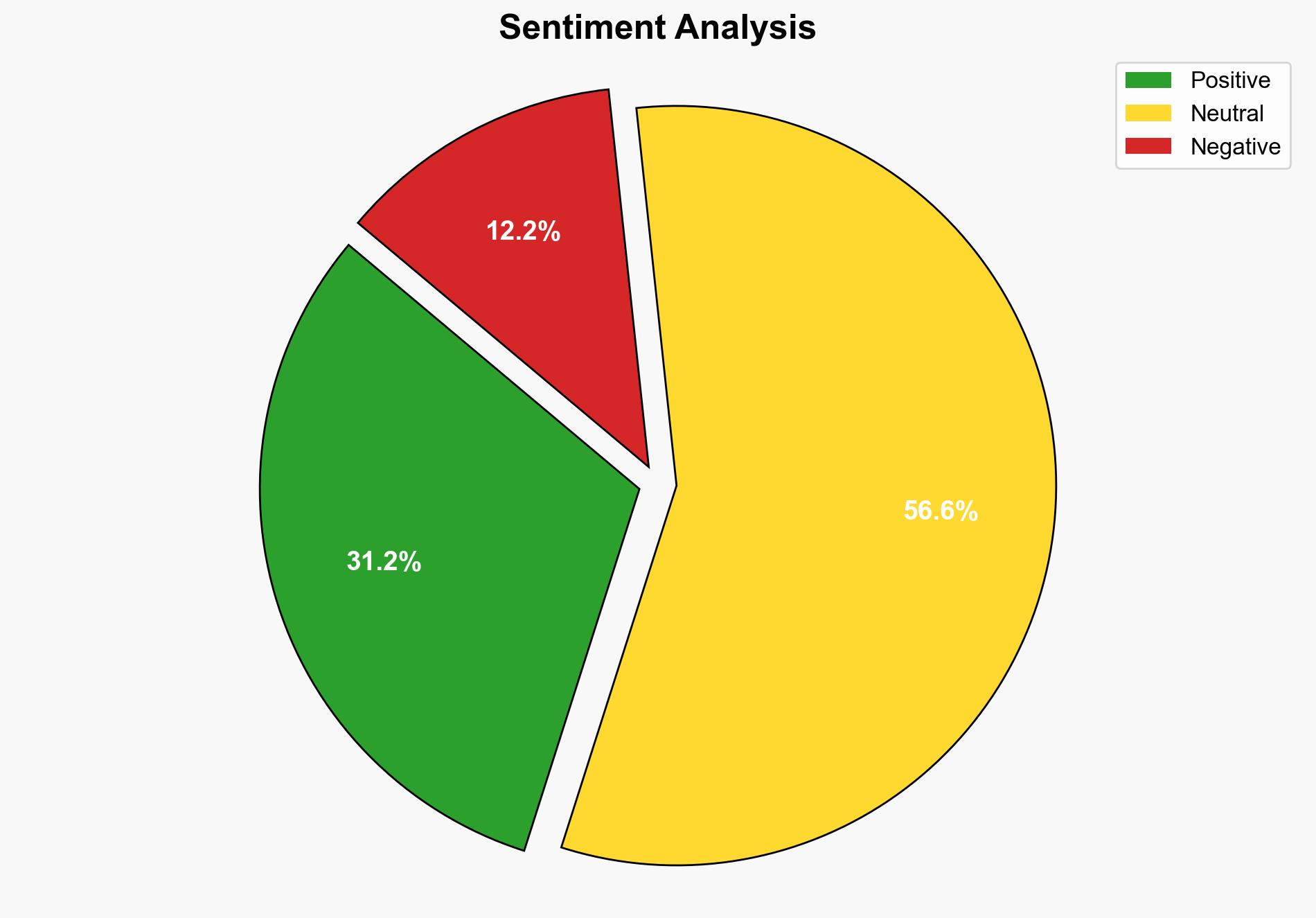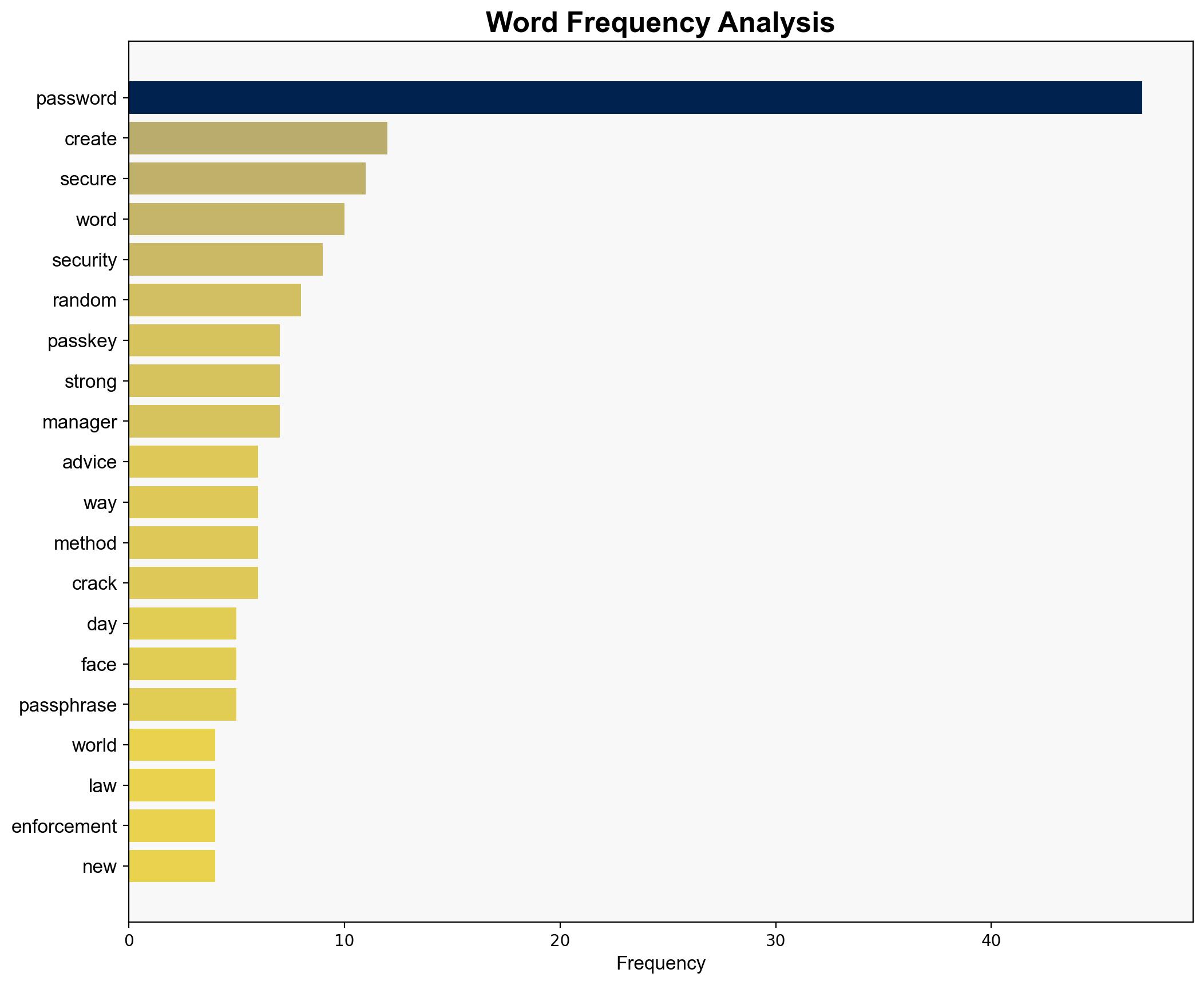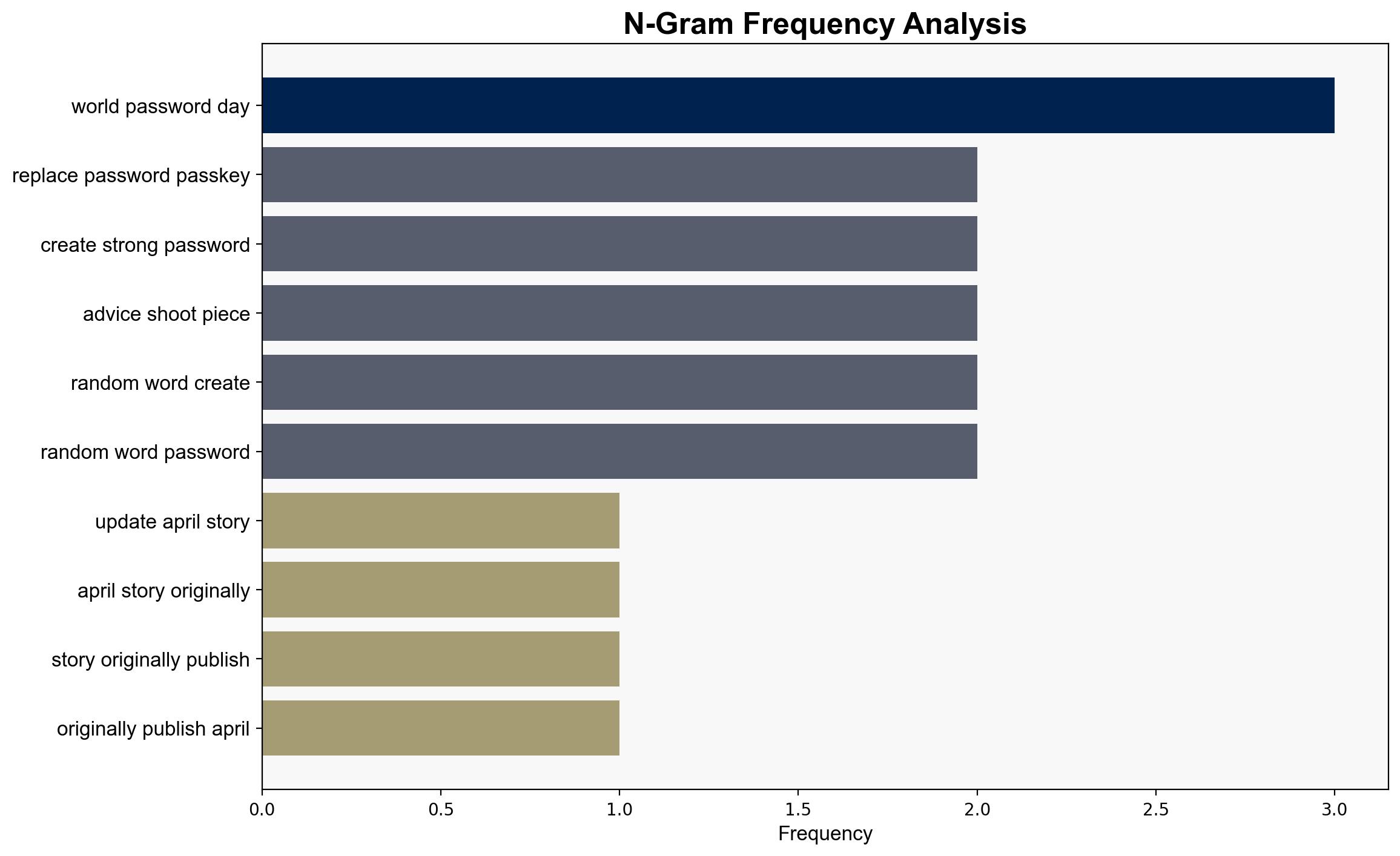Law Enforcement Can Break 77 Of Three Random Word Passwords – Forbes
Published on: 2025-04-27
Intelligence Report: Law Enforcement Can Break 77 Of Three Random Word Passwords – Forbes
1. BLUF (Bottom Line Up Front)
Recent research indicates that law enforcement agencies can efficiently crack 77% of passwords composed of three random words. This finding challenges the conventional advice of using random word combinations for secure passwords. The study underscores the need for more robust password strategies to enhance cybersecurity defenses. Recommendations include adopting passphrases, utilizing password managers, and transitioning to passkeys where feasible.
2. Detailed Analysis
The following structured analytic techniques have been applied to ensure methodological consistency:
Analysis of Competing Hypotheses (ACH)
The hypothesis that three random word passwords are secure was tested against the evidence of law enforcement’s ability to crack them. The evidence supports the hypothesis that such passwords are vulnerable due to predictable word combinations and limited complexity.
SWOT Analysis
Strengths: Random word passwords are easy to remember.
Weaknesses: Vulnerable to cracking due to common word combinations.
Opportunities: Adoption of passphrases and password managers.
Threats: Increasing sophistication of cyber threats and password cracking techniques.
Indicators Development
Key indicators of emerging threats include increased reports of password breaches, advancements in password cracking tools, and shifts in cybersecurity best practices towards passkeys and biometric authentication.
3. Implications and Strategic Risks
The ability to crack random word passwords poses significant risks to personal and organizational cybersecurity. This vulnerability may lead to increased data breaches, identity theft, and unauthorized access to sensitive information. The systemic risk is compounded by the widespread use of such passwords across various platforms.
4. Recommendations and Outlook
- Encourage the use of passphrases that are longer and more complex than simple random word combinations.
- Promote the adoption of password managers to generate and store complex passwords securely.
- Advocate for the transition to passkeys and biometric authentication methods to enhance security.
- Scenario-based outlook: In the best case, widespread adoption of stronger password practices reduces breach incidents. In the worst case, failure to adapt leads to increased cybercrime and data loss. The most likely scenario involves gradual improvement as awareness and technology adoption increase.
5. Key Individuals and Entities
Mohamad Hachem, Adam Lanfranchi, Nathan Clarke, Joakim Kavrestad.
6. Thematic Tags
(‘national security threats, cybersecurity, counter-terrorism, regional focus’, ‘cybersecurity’, ‘counter-terrorism’, ‘regional focus’)




